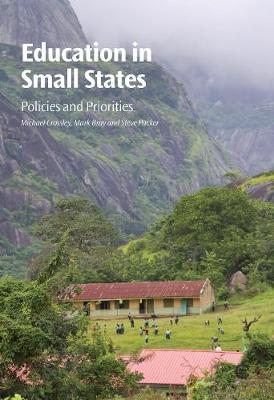Comparative & International Education S.
1 total work
Education in Small States
by Michael Crossley, Mark Bray, and Steve Packer
Published 28 February 1993
Although the world has nearly 80 states with populations below 1.5 million, only recently have the distinct features of education in such small states begun to attract discussion in the international literature. This comprehensive, globally-focused work examines the impact of assets and problems of small size on education systems. The research first presents a conceptual framework and identifies commonalities in the economies, societies and polities of small states. It then focuses on the goals of education, administration of small systems, and issues of curriculum, regional cooperation and foreign aid. This is followed by case studies, including Montserrat, Brunei Darussalam, Macau and Bhutan. The final chapter presents conclusions both in theory and in practice.
